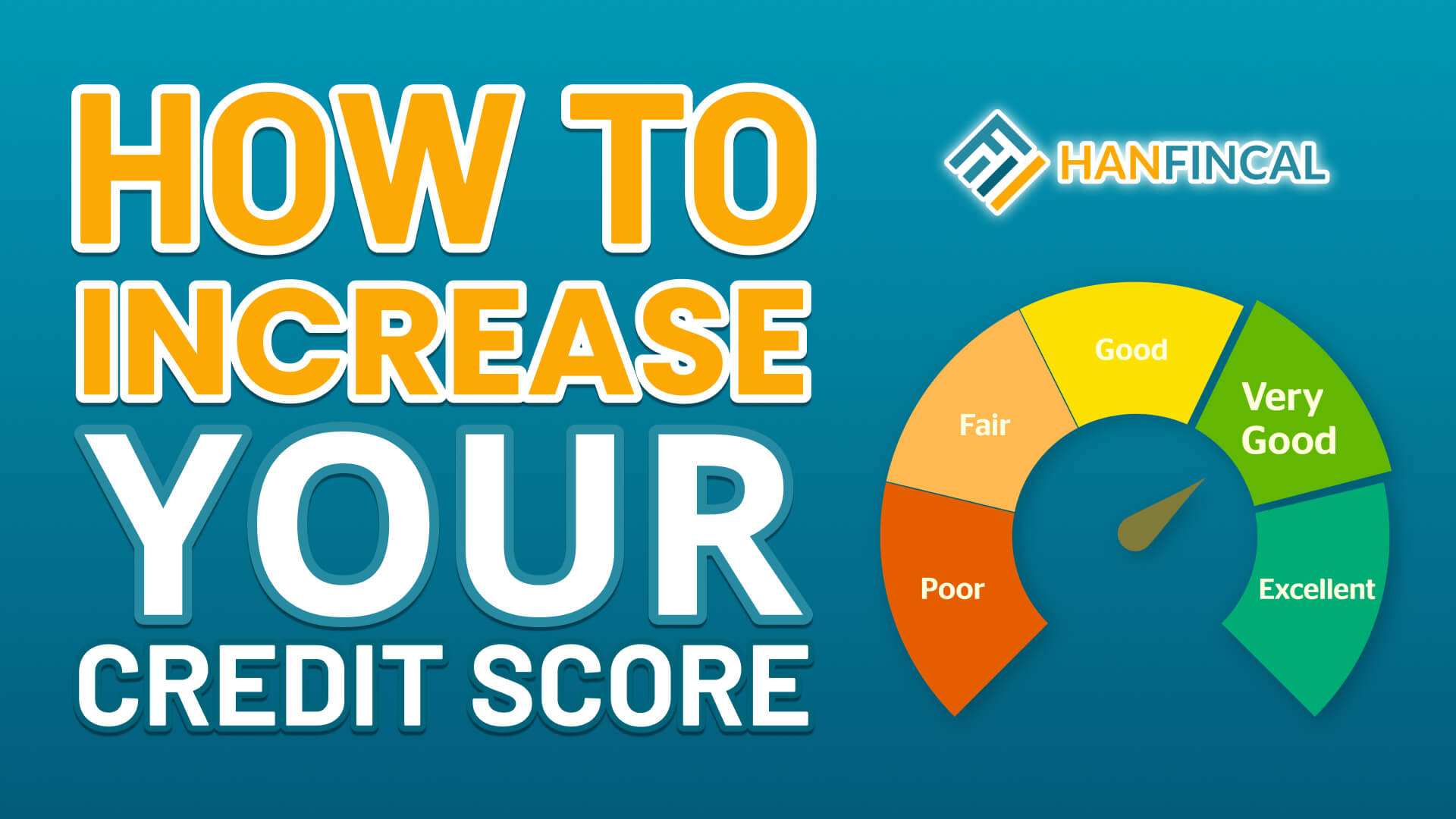Credit cards are a great place to start if you’re beginning and want to build your credit but don’t know where to begin. However, how to get a credit card with no credit? Hanfincal will show you how in this article.
1. What does ‘no credit history’ mean?
You have zero credit history if you have never applied for a loan, credit card, or other forms of financing. You have no credit history with the three major credit bureaus—Equifax, TransUnion, and Experian.
You don’t have anything that demonstrates how you handle debt if you don’t have a credit history to show lenders. This means that lenders have no idea whether you handled it well or poorly. When you apply for a credit card or a loan, expect them to be skeptical.
People with no credit history are also known as credit invisible. Furthermore, having no credit history does not imply that you have zero credit score. This is an important distinction because, according to the most popular credit scoring systems, a credit score of zero is not even possible. If you do not have a credit history, you don’t have a credit score.
2. What do you need for your first credit card?
When considering credit cards for the first time, it’s good to look for any eligibility requirements first.
The following step is to decide what kind of credit card you want. It might be a good idea to look into the interest rates and whether there are any annual fees or other potential fees.
Before applying for a credit card, you can also see if you’re pre-qualified or pre-approved. Because pre-qualification and pre-approval are considered soft inquiries, they have no impact on your credit scores.
If you have no credit history, you should look for credit card features that will help you build credit and manage your spending.

What do you need for your first credit card?
3. Credit cards for beginners
3.1. Retail store credit card
Using a store credit card in the store with which it is associated may earn you more rewards than using a traditional rewards credit card in the same store. Furthermore, some store cards include additional benefits such as discount coupons and event invitations.
If a retail store card is reported to the credit bureaus, it may appear on your credit report. Like any other credit card account, store cards can help you build credit over time if used responsibly.
A store credit card can provide you with savings and benefits both now and in the future. However, before deciding whether to apply for one, you should read the card’s terms and conditions.
3.2. Secured credit card
The majority of secured cards are used as a financial tool to help you build or improve your credit. A secured card’s credit limit is typically determined by the amount you put down as a security deposit.
Suppose you consistently make on-time payments on a secured credit card. In that case, the lender may eventually increase your credit limit or offer you an unsecured credit card with more appealing terms and better rewards. If you want to build credit but cannot obtain an unsecured credit card, a secured card may be a viable option.
Furthermore, by responsibly using your credit card, you may be able to begin building a credit history and recoup your security deposit.
3.3. Student credit card
Student credit cards are a type of card designed specifically for college students, and applicants with no credit history may be eligible. This card is issued by a bank or credit union and can be obtained whether you are a part-time or full-time student.
You may be able to help build credit by responsibly using a student credit card. When it comes to buying a car or leasing an apartment, your credit can be essential. Some student cards may have lower or no annual fees and provide benefits that students find appealing.
Some credit issuers will allow you to transfer your account to a standard card after you graduate. You will most likely qualify for a higher credit limit if this occurs.
3.4. Alternative credit cards
Petal Card and Deserve are two examples of alternative credit cards. Neither requires credit history to apply, but credit card issuers will look into it if you have one. Being approved is contingent on having a bank account to demonstrate that you have consistent income and can meet your expenses. These cards can be a good option for people who have an excellent financial situation but no credit history.
Paying the total balance each month is safe to avoid interest charges, but it requires some spending discipline. You should only spend within your means before the grace period expires.
4. How to get a credit card with no credit?
If you have no credit history, you can apply for a credit card through the mail, online, by phone, or in person. Issuers will ask for information such as your full name, Social Security number, birthday, address, and income when applying for a credit card.
It’s an excellent idea to check your credit reports frequently while building credit. This is because credit card companies typically use them when evaluating credit card applications. You’ll also want to know if there are any errors in your credit reports.
When applying for a credit card with no credit history, you must provide the following information:
- Your postal address is: You may be asked to provide your address/addresses for the previous three years. Sometimes, lenders may require you to have lived at your current address for a specified time.
- Identification: Most lenders will request documents to verify your identity; these will frequently be drawn from an official list and include a photo ID such as your driver’s license or passport.
- Your income: Lenders will want to see that you can afford to make your card payments on time. You need to provide proof of income in bank statements.

How to get a credit card with no credit?
5. Other ways to access credit
5.1. Co-signer
If you are not eligible for a credit card on your own, you may have heard that applying with a co-signer can help. However, many credit card companies no longer accept co-signers.
Along with the primary borrower, a co-signer assumes full responsibility for loan repayment.
A co-signer is frequently a family member. If the borrower cannot pay, the co-signer is obligated to pay any missed payments as well as the total amount of the loan.
A co-signer acts as a backup plan for the lender. They usually have good credit and a steady income. Lenders are easier to approve a loan when two people are responsible for repaying it, and at least one of them is a highly qualified borrower.
5.2. Authorized user
A person who added their name to a credit card account by the primary cardholder is known as an authorized user.
You’ll get your own card as an authorized user, so you can use the account’s credit line to make purchases. However, the initial cardholder is ultimately responsible for the account. Regardless of who made the purchases, the credit card company will expect the primary account owner to pay the monthly bill.
Adding an authorized user may incur a fee. Cards with an annual fee may also have an authorized-user fee of $75 or more.
An authorized user could help you build your own credit history if the issuer reports authorized users and the card is used responsibly. Being an authorized user is also an excellent way to learn how to manage a credit card.
6. How to use your first card to build credit?
- Make good use of your first credit card: To build a strong credit history, You have only to spend no more than 30% of your available credit line.
- Monitor your account: This action allows you to receive alerts informing you when you’re nearing the end of your credit limit, when bill payments are due, and other important information.
- Pay on time: A single late or missed payment can result in interest charges and late fees. Furthermore, late payments have the potential to harm your credit score.
- Keep your credit card open: Even if you don’t use your account frequently, keep it active.
- Know your credit score: The higher your score, the more likely you will be approved for a card and reap the lower interest rate.
- Pay total balance: The best way to avoid debt accumulation is to pay your balance in full. However, if you cannot do so, paying more than the minimum payment due will save you money in interest charges in the long run.
- Once a year, review your credit report: Check your report for errors, as they can hurt your credit score. If you discover an error in your credit report, depute with credit bureaus.
How to get a credit card with no credit? Getting approved for a card is only the first step. Whichever one you choose, it’s a good idea to use credit responsibly by paying at least the minimum payment on time every month. If you have financial difficulties, Hanfincal can assist you.
==> Read More:




